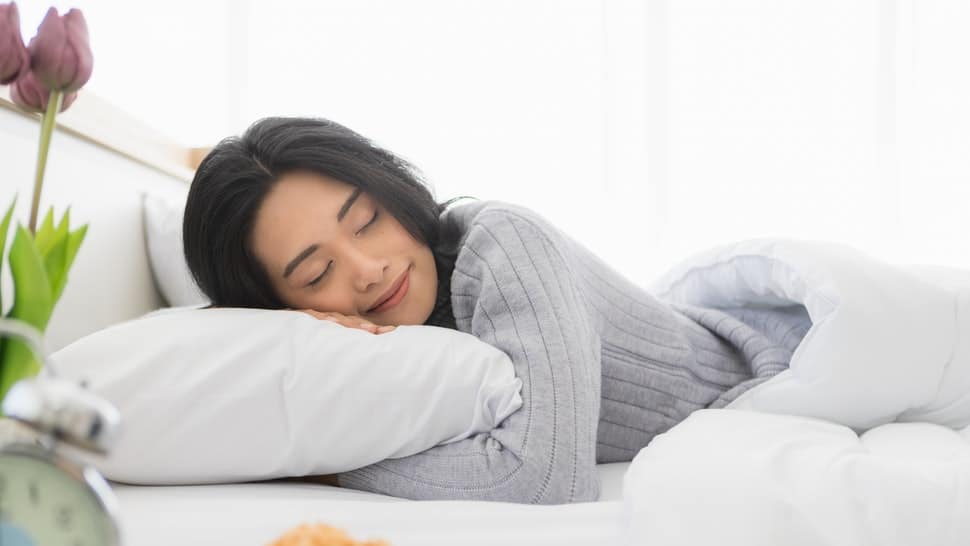
In our increasingly connected world, fewer and fewer people are getting enough sleep. However, for those who want to perform at their best, getting enough sleep should be a priority. Sleep is crucial is to our daily performance. Studies have demonstrated time and again that sleeping for less than seven or eight hours a night can have a dramatic impact on cognitive performance, especially attention spans, working memory, and decision-making. Furthermore, insufficient or poor quality sleep can negatively affect your mental wellbeing and impair your body’s ability to fight sickness and disease.
We’ve written elsewhere about the link between sleep and leadership, but in the following article we’ll provide you with some tried and tested advice on how to get a good night’s rest so that you can learn, perform, and succeed.
Change Your Environment
Our brains and bodies take their triggers from our environment and this covers a range of factors including lighting, temperature, air quality and noise. For instance, if a room is brightly lit or there’s bright street lighting outside, falling asleep becomes naturally more difficult. Our brain responds to natural darkness by preparing our bodies for sleep. If you want to prepare for sleep, one tip is to dim the lights in your room and turn them off entirely when you’re ready to sleep.
Our brains produce less sleep-inducing melatonin when our eyes are exposed to light. Blue light, which emanates from smartphones and laptops, are especially stimulating and can be a serious obstacle to sleep. It’s a good idea to avoid using these kinds of electronic devices for at least two hours before going to bed.
Additionally, fresh air can promote good sleep. A stuffy or dusty bedroom is a bad sleeping environment. Opening a window to let air circulate is a good way of controlling your air quality and enabling your sleeping body to breathe properly.
Get The Right Mattress
We spend a third of our lives in bed or asleep, so it really pays to invest some money in a good mattress. It doesn’t need to be gadget-laden, but it does need to support your back and respond to the contours of your body. An amazing choice would be getting a new Saatva mattress, which doesn’t have to be expensive if you use Saatva mattress coupon and save a few bucks while solving your sleeping troubles. Aside from affecting the quality of your sleep, lying for long periods on a mattress that’s too hard or too soft can have a dramatic impact on your musculoskeletal system.
As consumers, we’re content to spend more money on our TV-screens or mobile phones than we are on a mattress. That’s not for want of options though; if you’ve not bought a mattress in recent years, you might be surprised by the options now available to consumers. That is why mattresses like the Sleep Republic Mattress is one that you might want to check out. Memory foam mattresses are becoming increasingly popular for their excellent support and breathability, and they’re now more accessible than they used to be. For example, burgeoning companies such as Eve are pioneering a one-size-fits-all approach to mattresses, and deliver direct to your door.
Too often we’ve stuck in sleeping habitats that don’t reflect the reality of our bodies. As our bodies age and change, we need to change our and increasingly it pays to adjust. One key tip is to simply experiment with different sleeping arrangements. This tip applies to both the environmental and habitual factors that affect sleep. You might think you sleep best with a thick pillow, but perhaps a thin pillow or no pillow will suit you better. The point is simply to experiment and from time to time shake things up.
Rituals & Patterns
As psychologists have long known, our brains respond well to structure and cues. This is especially the case with our sleeping patterns. To get a really great night of sleep, it helps to prepare and to signal to the body that bedtime is approaching. These cues can vary from person to person, but certain foodstuffs, such as chamomile tea, have a proven effect on the body’s sleep.
The human sleep cycle consists of about 90 minutes; 30 mins of light sleep, 30 minutes of deep sleep, and a dream stage called REM (Rapid Eye Movement) sleep. During a full night of sleep, we repeat this cycle several times. A full night’s sleep consists of five or six cycles, or seven and a half to nine hours of sleep. Interrupting the cycles of sleep can leave you groggy or tired throughout the day, so it pays to know your body’s rhythms and plan your bedtime accordingly.
Conclusion
In recent years, sleep has been portrayed as a luxury and consequently all kinds of expensive accessories, tech, and apps have entered the market, promising consumers better sleep. However, the fundamentals of a good night’s sleep remain the same. To get a good night’s sleep, you should consider your bedroom environment, invest in a good mattress that supports your body, and learn your own patterns and create your own rituals to let your body get on with the important business of sleeping.

Founder Dinis Guarda
IntelligentHQ Your New Business Network.
IntelligentHQ is a Business network and an expert source for finance, capital markets and intelligence for thousands of global business professionals, startups, and companies.
We exist at the point of intersection between technology, social media, finance and innovation.
IntelligentHQ leverages innovation and scale of social digital technology, analytics, news, and distribution to create an unparalleled, full digital medium and social business networks spectrum.
IntelligentHQ is working hard, to become a trusted, and indispensable source of business news and analytics, within financial services and its associated supply chains and ecosystems





























